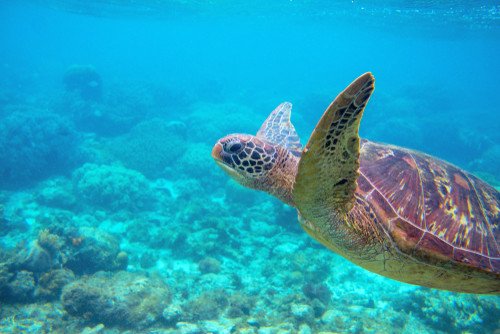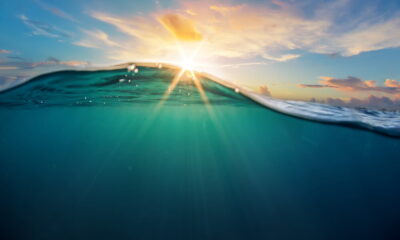

Editors Choice
What To Know About Using Conservation Ecology To Help Marine Life
The fact of the matter is that all living creatures, including human beings and wildlife, need water for supporting life. Water is an integral part of biological life in all of the universe, but water must be clean, pure, unpolluted in order to give energy to the natural environment and its habitants. In other words, there are plenty of various challenges facing the oceans, seas, lakes, and the rest of the body of water, which jeopardize the very principle of life on Earth. Therefore, by all means, it is humans’ responsibility to help and preserve marine life, and conservation ecology is the best way to achieve the objective.
1. What is the problem?
Before anything else, it is critically important to define the problem. Have you ever seen videos or pictures of the mass fish kill caused by oxygen depletion or water poisoning, which, in turn, had been caused by trash and plastic pollution? Perhaps, you did not know scientific explanations of what caused fish extinction, but you definitely were shocked by the outrageous sight of die-off of fish populations. Though the reason of that worldwide tragedy is extensive and complex, the most direct source of it is anthropogenic (or human-made) marine pollution.
According to Jenny Howard, “marine pollution, as distinct from overall water pollution, focuses on human-created products that enter the ocean. Millions of tons of heavy metals and chemical contaminants, along with thousands of containers of radioactive waste, were purposely thrown into the ocean.” Imagine a rapidly growing and economically developing industrial company that illegally gets rid of the chemical trash into the nearest ocean or a sea which eventually flows into the ocean and destroys the marine life.
2. How to Solve the Problem?
On the one hand, the ecological problem has to do with the legal sector and the laws, and this is the reason why politicians, lawyers, and legislators should engage in the discussion. In that case, the solution would be the new laws, policies, and regulations. However, since the marine pollution has swiftly reached a critical point, and the destruction of the sea flora and fauna proved to be an irreversible process, the ultimate solution can only be found in the conservation ecology. According to the Michigan School for Environment and Sustainability, “conservation ecologists are working to reverse the environmental damage done by the rapid encroachment of human populations and economies, and build a long-term plan to sustain our precious natural resources.”
In other words, oceans, seas, lakes, rivers, creeks, waterways, streams, and other reservoirs of the Earth cannot be restored completely, but ecologists can at least slow down the process, stop it, or even pull it a little bit back. Thus, the point of the conservation ecology is to preserve natural resources so that ecosystems and species might be saved from extinction.
3. Who Can Solve the Problem?
This should not be surprising that the field of conservation ecology is limited to the narrow scope of specialists, world-class professionals whose academic specialization intersects with numerous disciplines. Thus, people who can solve the problem of marine pollution must be specialists in “marine science including marine biology, ecology, ichthyology, oceanography, biological oceanography, and others so that scientific data can be used to help solve problems effectively and sustainably.” Therefore, conservation ecologists are, by and large, graduates of the specialized programs which train students in all of the mentioned directions through fieldwork, labwork, and cooperation with the environmental agencies.
As a result, conservation ecologists are prepared to deal with marine pollution on the international level because their experience is comprehensive and thorough. The most important aspect of the ecologists’ work is their license. Needless to say, only approved specialists can approach such a delicate subject as marine life. Moreover, it appears that a certain proportion of the current ecological issues has been indirectly caused by an amateur, unprofessional attempts to solve the problem. Therefore, quality environmental education focused on the narrow subject is essential for conservation ecology with respect to helping marine life.
4. What if Nobody Will Solve the Problem?
Remember John Lennon’s most popular song called “Imagine”? Let’s rephrase and alter it a little bit so that the song might fit our ecological context: “Imagine there is no water, below us only ground.” Scary, isn’t it? Nevertheless, according to the contemporary ecologists and researchers who work in the related disciplines notice that “The potential demise of one-fourth or more of the Earth’s species before the end of this century represents an irreversible loss of nature and may significantly undermine the sustainable use of nature’s services.” It is neither a dystopian novel nor fake news; marine pollution leads to the inevitable destruction of the Earth, and it is humans’ responsibility to intervene in the process. However pretentious and overgeneralized this statement may seem, the future of our planet depends on the group of skilled professionals, conservation ecologists who alone can stop the pollution and prevent its development.
Conclusion
In conclusion, water is an integral part of biological life in all of the universe, but water must be clean, pure, unpolluted in order to give energy to the natural environment and its habitants. Since marine pollution has rapidly reached a critical point, and the destruction of the sea flora and fauna proved to be an irreversible process, the ultimate solution can only be found in the conservation ecology. Conservation ecologists are prepared to deal with marine pollution on the international level because their experience is comprehensive and thorough. It appears that the future of our planet depends on the group of skilled professionals, conservation ecologists who alone can stop the pollution and prevent its development.


 Environment12 months ago
Environment12 months agoAre Polymer Banknotes: an Eco-Friendly Trend or a Groundswell?

 Features11 months ago
Features11 months agoEco-Friendly Cryptocurrencies: Sustainable Investment Choices

 Features12 months ago
Features12 months agoEco-Friendly Crypto Traders Must Find the Right Exchange

 Energy11 months ago
Energy11 months agoThe Growing Role of Solar Panels in Ireland’s Energy Future





























